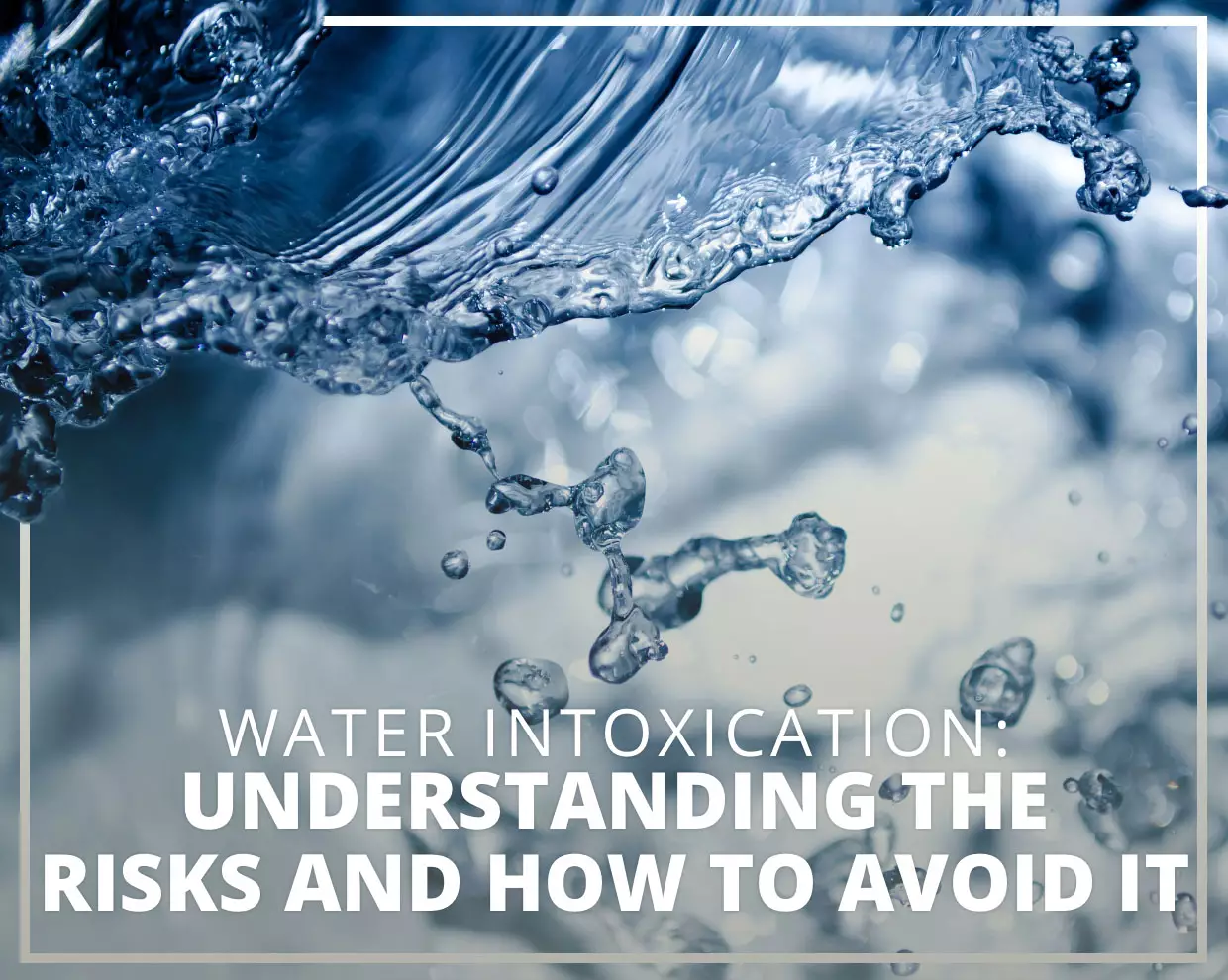Water is essential for life. It plays a pivotal role in every cell and function within our body. From aiding digestion to regulating temperature, water is a fundamental component of our daily lives. However, as with many things in life, too much can be detrimental. In this article, we'll explore the phenomenon of water intoxication, its associated risks, and how to prevent it.
What is Water Intoxication?
Water intoxication, also known as water poisoning or hyperhydration, arises when an individual consumes an excessive volume of water in a short span. This rapid intake can lead to a dangerous imbalance in the body's electrolytes, especially sodium, which can have severe repercussions. [1]
How Does It Occur?
Our kidneys can excrete a maximum of 0.8 - 1.0 litres of water per hour. Drinking water beyond this limit can dilute the sodium in our bloodstream, a condition termed hyponatremia. [2] Sodium is a crucial electrolyte that helps regulate water balance in and around cells.
When you drink an excessive amount of water, the surplus can dilute the sodium in your bloodstream. This imbalance can cause water to flood into cells, causing them to swell. While most cells can manage this swelling, neurons (brain cells) are notably vulnerable. The brain, encased within the skull, has limited space to expand, leading to increased intracranial pressure. This can manifest in symptoms ranging from nausea and headaches to seizures, coma, and even death. [3]
Symptoms of Water Intoxication
Recognising the early signs of water intoxication can be life-saving. Symptoms encompass:
• Nausea and vomiting
• Headache
• Confusion or disorientation
• Seizures
• Muscle cramps or spasms
• Unconsciousness or coma [4]
Who is at Risk?
Whilst anyone can suffer from water intoxication if they drink vast amounts in a short time, certain groups are more at risk:
1. Athletes: Particularly those participating in endurance sports. They might consume large quantities of water to ward off dehydration, putting them at risk. [5]
2. Patients with certain medical conditions: Such as heart or kidney problems, or those on specific medications affecting kidney function.
3. Infants: Their kidney function is lower compared to adults, making it challenging to excrete excess water efficiently.
4. People taking MDMA (Ecstasy): The drug can stimulate persistent thirst, leading to excessive consumption. [6]
How to Prevent Water Intoxication
• Listen to Your Body: Thirst is a reliable indicator. Drink when you're thirsty and avoid overconsumption.
• Limit Intake During Exercise: It's vital to stay hydrated during physical activity but avoid gulping down large volumes quickly. Instead, sip moderate amounts steadily.
• Maintain Electrolyte Balance: If you're sweating excessively or partaking in endurance sports, consider drinks that replenish lost electrolytes.
• Stay Informed: If you're on medications or have medical conditions affecting your kidneys, consult your GP about safe water intake levels.
• Avoid Alcohol: Alcohol can impair your ability to sense thirst and can increase urine production, potentially leading to dehydration followed by overhydration.
Water is undeniably vital for our health, but balance is paramount. By understanding the risks linked with excessive water consumption and recognising the signs of water intoxication, we can ensure we're hydrating in a manner that bolsters our health, rather than jeopardising it.
Stay hydrated, stay informed, and always prioritise your well-being.
References:
1 Water, Hydration and Health
2 Exercise-associated hyponatremia
3 Hyponatremia, cerebral edema, and noncardiogenic pulmonary edema in marathon runners
4 Statement of the Third International Exercise-Associated Hyponatremia Consensus Development Conference, Carlsbad, California, 2015
5 Case proven: exercise associated hyponatraemia is due to overdrinking. So why did it take 20 years before the original evidence was accepted?
6 The agony of ecstasy: MDMA (3,4-methylenedioxymethamphetamine) and the kidney

 UK Store
UK Store  NZ Store
NZ Store AU Store
AU Store EU Store
EU Store














